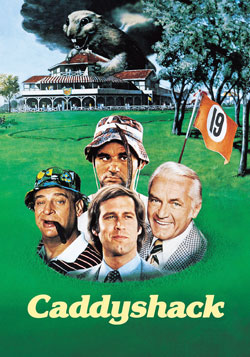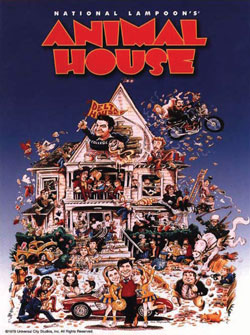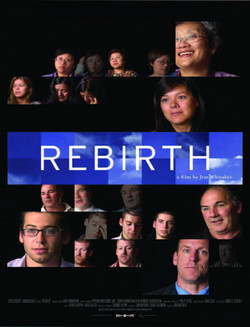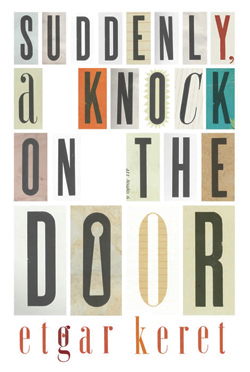Though taste in comedy might differ, laughter is universal. Few understood this fundamental truth more than the late Harold Ramis, a Hollywood visionary behind cult classic films like “Ghostbusters,” “Caddyshack,” and “Groundhog Day.” News broke Monday, Feb. 24 that Ramis had passed away due to autoimmune inflammatory vasculitis at the age of 69, and his loss has since been felt all throughout the film community.
The writer, director, and actor was most often characterized by his boundary-pushing humor, first showcased when he got his start at Chicago’s Second City, a well-known comedy troupe. After an auspicious launching of his career, Ramis left the windy city for the Big Apple to collaborate with Bill Murray and John Belushi in “The National Lampoon Show.”
Before long, Ramis’ satiric writing style was in demand. He was hired as a performer and head writer of “SCTV,” a late-night sketch comedy show in the same vein as “Saturday Night Live.” This move would effectively launch his film career as he regrouped with the “National Lampoon” team to write the rowdy fraternity movie, “Animal House.” Following this successful debut came “Caddyshack,” a film directed by Ramis about country club golfers, played by comedic veterans Chevy Chase and Rodney Dangerfield.
 From the perspective of our generation, Ramis’ work on “Ghostbusters” is the most recognizable; Ramis not only co-wrote the script, but starred as Dr. Egon Spengler alongside Bill Murray and Dan Aykroyd. Despite being considered his most well-known contribution to film, Ramis’ character isn’t often the first ‘Ghostbuster’ that comes to mind when recalling the Hollywood classic. In fact, many of Ramis’ films feature him as only a minor character, wherein he is happy to forfeit the spotlight to his co-stars.
From the perspective of our generation, Ramis’ work on “Ghostbusters” is the most recognizable; Ramis not only co-wrote the script, but starred as Dr. Egon Spengler alongside Bill Murray and Dan Aykroyd. Despite being considered his most well-known contribution to film, Ramis’ character isn’t often the first ‘Ghostbuster’ that comes to mind when recalling the Hollywood classic. In fact, many of Ramis’ films feature him as only a minor character, wherein he is happy to forfeit the spotlight to his co-stars.
A statement released by The Second City, Ramis’ start-up platform, acknowledged this occurrence, noting that it had less to do with his abilities and more with his willingness to showcase others’ talents.
“[He was] so generous with his own talent that he made everyone he worked with look like a genius,” Andrew Alexander, CEO of The Second City, wrote on the company’s website.
Monmouth students noticed a similar phenomenon, citing it as the reason they were unfamiliar with Ramis’ groundbreaking work until doing some research.
“I didn’t know who he was when I heard the news,” said Gabby Morrison, a freshman, “but once I read about the projects he’d been involved in, I put two and two together. It really gave me a whole new appreciation of movies like ‘Ghostbusters’ and ‘Caddyshack.’”
 Other students recognized the name right away, and credited the director for some of their childhood film experiences.
Other students recognized the name right away, and credited the director for some of their childhood film experiences.
“My parents were really big fans of [the movies] ‘Ghostbusters’ and ‘Groundhog Day,’” said junior Frank Griffiths. “I feel like Ramis was a big part of my childhood, even if I didn’t grow up in that generation.”
Many of Ramis’ movies, having come out in the 80’s, are regarded today with an air of nostalgia. This is especially true for filmmaker Judd Apatow, who was raised on the satires helmed by Ramis.
“[He] made almost every movie which made me want to become a comedy director,” Apatow said in a statement obtained by The Hollywood Reporter, “I looked up to him as a director but even more so as a man.”
Ramis was highly regarded in Hollywood, but he was equally respected by those who were touched by his work. The filmmaker had a writing style that was not only disarmingly funny, but subtly profound, through which he made average Joe characters become heroes to teenagers everywhere. His approach to comedy was so universal that even President of the United States Barack Obama took a moment last Monday to comment.
“[Ramis] was one of America’s greatest satirists,” President Obama wrote in a statement, “When we watched his movies… we didn’t just laugh until it hurt. We questioned authority. We identified with the outsider. We rooted for the underdog. And through it all, we never lost our faith in happy endings.”
It goes without saying that Ramis’ creative and comedic genius will be missed. More importantly, though, Ramis should be recognized as a man who knew how to tell a great story – a story that not only defined a generation, but made us laugh, cry, and believe in ourselves along the way.
PHOTOS TAKEN from fanart.tv, azcapitoltimes.com and giantbomb.com




